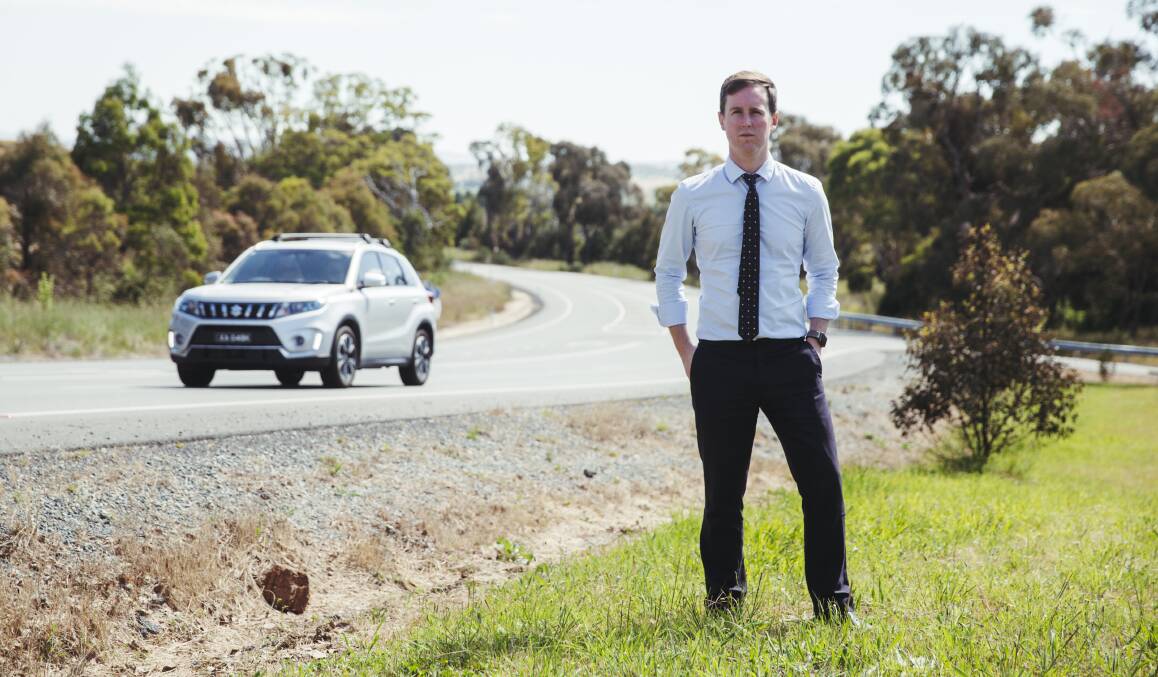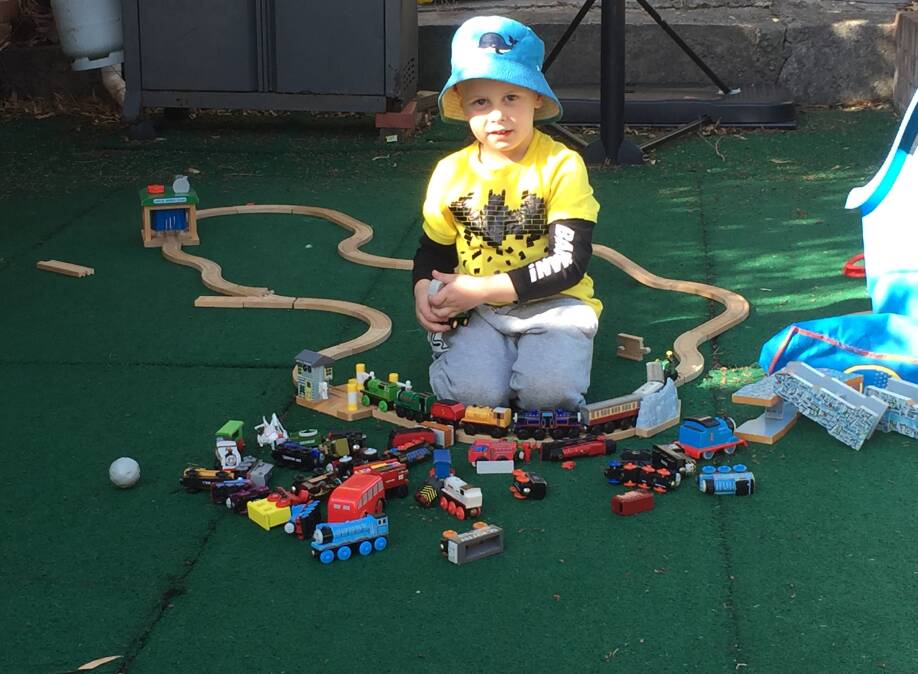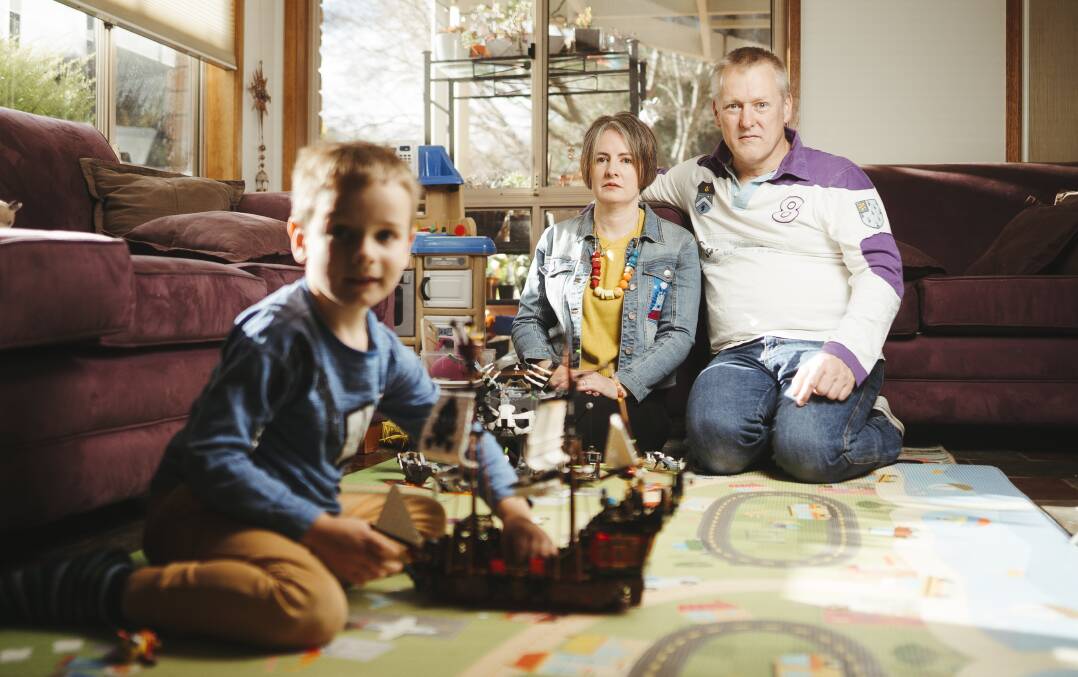
Medical practitioners would be required to report patients with conditions that could affect their ability to drive to licensing authorities under changes being considered by the ACT government.
Transport Minister Chris Steel told the Legislative Assembly the government would propose new legislation in response to the findings from the coronial inquest into the death of Blake Corney, a four-year-old who was killed in an major rear-end collision on the Monaro Highway in July 2018.
"In doing this we will work to balance keeping people safe with the human right of respecting people's privacy. We are considering how we can protect those required to make a report and preserve the trust that is an important part of the therapeutic relationship between a health practitioner and their patient," Mr Steel said.
The government would also ensure autonomous emergency braking and driver distraction and fatigue detection systems, which Chief Coroner Lorraine Walker suggested could have prevented Blake's death, were incorporated in vehicles bought by the ACT.
"Young Blake Corney's life should never have been lost. Our work does not finish here and we will continue to relentlessly pursue road safety in the future," Mr Steel said.
The minister said the ACT could not afford to miss out on the potential safety technology had to save lives, and the government was investigating options to further incentivise fitting fatigue and distraction detection technology in heavy vehicles.

The ACM Blake's Legacy campaign earlier this year called for the coroner's recommendations to be adopted nationally, including more stringent medical assessments and reporting, and the expedited uptake of modern truck safety technology.
Blake's parents, Andrew Corney and Camille Jago, previously said implementing the recommendations was achievable and would reduce the number of dangerous drivers on the road.
Mr Steel had already begun advocating at the national Infrastructure and Transport Ministers Meeting for tighter rules on heavy vehicle fitness assessments.
"As a result, the National Transport Commission has been tasked with considering the role of screening checks for illnesses we see affecting heavy vehicle drivers: sleep disorders, diabetes and cardiovascular issues," he said.
Mr Steel said he had put forward the model of screening tests in use for train drivers as one that could apply to heavy vehicle drivers, a suggestion of the Australian Trucking Association.
The federal government in March announced autonomous emergency braking would be a requirement in all new heavy vehicles from November 2023.
Autonomous emergency braking systems detect likely collisions ahead and give the vehicle's driver a warning. If the driver does not respond, the brakes are automatically applied.
However, Mr Steel took aim at the federal government's reluctance to mandate tougher emissions standards for new vehicles, which the uptake of safety technology was slower.
"We know that vehicles which comply with the latest emissions standards also generally incorporate a range of modern safety features," he said.
"We are concerned that the federal government's refusal to implement improved emissions standards for for new vehicles including heavy vehicles means we are not getting the newest and safest vehicle technology sold in the Australian market.
"New vehicles are safe vehicles, but we are not getting the newest vehicle technology."

Mr Steel said the Commonwealth should also adopt the United Nations Economic Commission for Europe's safety and emissions standards into the Australian design rules.
"This will prevent Australia from becoming a dumping ground for older, less safe and more polluting vehicles, including heavy vehicles," he said.
Mr Steel also pointed to upcoming improvements to the Monaro Highway, including at the intersection where Blake Corney was killed, as part of the government's commitment to road safety.
"These enhancements will completely change how traffic moves through the area, making travel far safer for light and heavy vehicles," he said.
After Blake Corney's death, the coroner, Ms Walker, recommended requirements for doctors to alert licensing authorities when they suspected their patients had a condition that meant they were not safe to drive.
The driver who crashed and killed Blake, Akis Livas, likely had sleep apnoea for about five years while he was behind the wheel of heavy vehicles. His doctor knew the man was unfit to drive, but there was no requirement to alert authorities. Livas is eligible for parole this month after two years in prison.
Since February, drivers applying for medium rigid, heavy rigid, heavy combination and multi-combination licences in the territory need to pass a commercial medical assessment first.
"The government has also taken steps to require a person applying to upgrade to a heavy vehicle licence to make self-declaration of medical fitness, including in relation to sleep disorders," Mr Steel told the Assembly on Thursday.
BLAKE'S LEGACY CAMPAIGN:
- 'I'd much prefer Blake to be here and not to have a legacy'
- Why you should care about the big safety problems with our heavy vehicles
- 'I don't accept that': the huge cost to our society of road trauma
- Trucking Australia's deadliest industry, unions say
- ACT leads national push for tougher heavy vehicle driver health screens
- About one in seven fail Hume Hwy truck safety checks
- Changes are being urged to how trucks are permitted to operate in urban environments
- 'Absolutely terrifying': How a brush with death changed Anthony's life
- Dramatic footage shows how truck rollover landed dangerous driving charge
- Drivers have 'moral duty' to improve safety: trucking association
- 'Always watching': How Australian technology is saving drivers' lives







